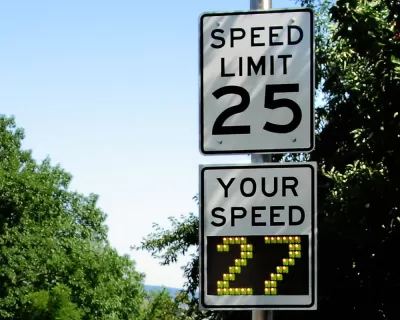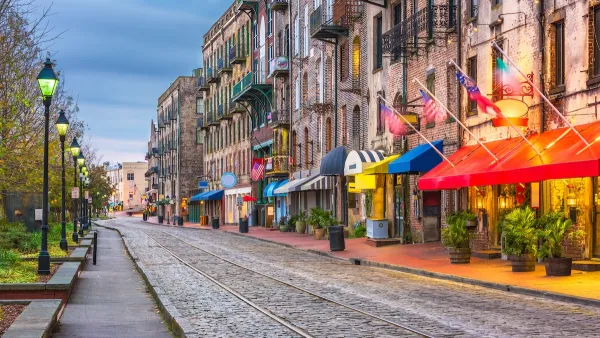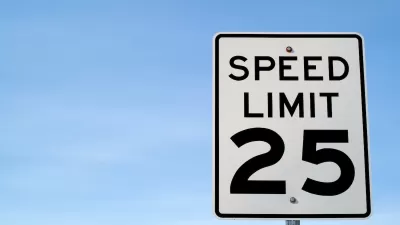Lower speed limits make cities safer, more livable, and, in the long run, more functional.

"The case for a fundamentally slower city has gained traction recently, especially in places where the rise of micromobility, the promise of autonomous vehicles, and the very-much-already-here problem of road congestion have converged, slowing drivers to a furious crawl," writes Andrew Small.
In the past, traffic jams were considered part of urban life, says Small, but drivers began to see speed as a right as cities changed and roads widened. Lately, however, a number of American cities have been moving back to lower speed limits, in response to both safety concerns and the diversifying of the mobility landscape.
"The most obvious immediate benefit to a fundamentally slower city is the safety boost it delivers. Reducing speeds is the best, easiest, and fastest way to quickly radically improve safety, for both drivers and anyone in front of them," says Small.
Technology, and the new modes that it has made possible, is also encouraging slower cities:
The micromobility revolution not only highlights a burgeoning need for more slow lanes: It can vividly illustrate the people-moving power of very modest speeds. When a dude on an electric scooter that rarely goes over 10 mph handily beats a BMW across town at rush hour, it’s easier to see how the scale of cities supports more-but-slower vehicles.
In addition, autonomous vehicles could help usher in a new era of slower-moving city streets. "If we can reconceptualize autonomous vehicles as low-speed machines trundling around downtown rather than interstate-eating robots tasked with making complex split-second driving decisions at highway velocities, everything gets less difficult," notes Small.
FULL STORY: Why Speed Kills Cities

Maui's Vacation Rental Debate Turns Ugly
Verbal attacks, misinformation campaigns and fistfights plague a high-stakes debate to convert thousands of vacation rentals into long-term housing.

Planetizen Federal Action Tracker
A weekly monitor of how Trump’s orders and actions are impacting planners and planning in America.

In Urban Planning, AI Prompting Could be the New Design Thinking
Creativity has long been key to great urban design. What if we see AI as our new creative partner?

Portland Raises Parking Fees to Pay for Street Maintenance
The city is struggling to bridge a massive budget gap at the Bureau of Transportation, which largely depleted its reserves during the Civd-19 pandemic.

Spokane Mayor Introduces Housing Reforms Package
Mayor Lisa Brown’s proposals include deferring or waiving some development fees to encourage more affordable housing development.

Houston Mayor Kills Another Bike Lane
The mayor rejected a proposed bike lane in the Montrose district in keeping with his pledge to maintain car lanes.
Urban Design for Planners 1: Software Tools
This six-course series explores essential urban design concepts using open source software and equips planners with the tools they need to participate fully in the urban design process.
Planning for Universal Design
Learn the tools for implementing Universal Design in planning regulations.
Gallatin County Department of Planning & Community Development
Heyer Gruel & Associates PA
JM Goldson LLC
City of Camden Redevelopment Agency
City of Astoria
Transportation Research & Education Center (TREC) at Portland State University
Jefferson Parish Government
Camden Redevelopment Agency
City of Claremont





























